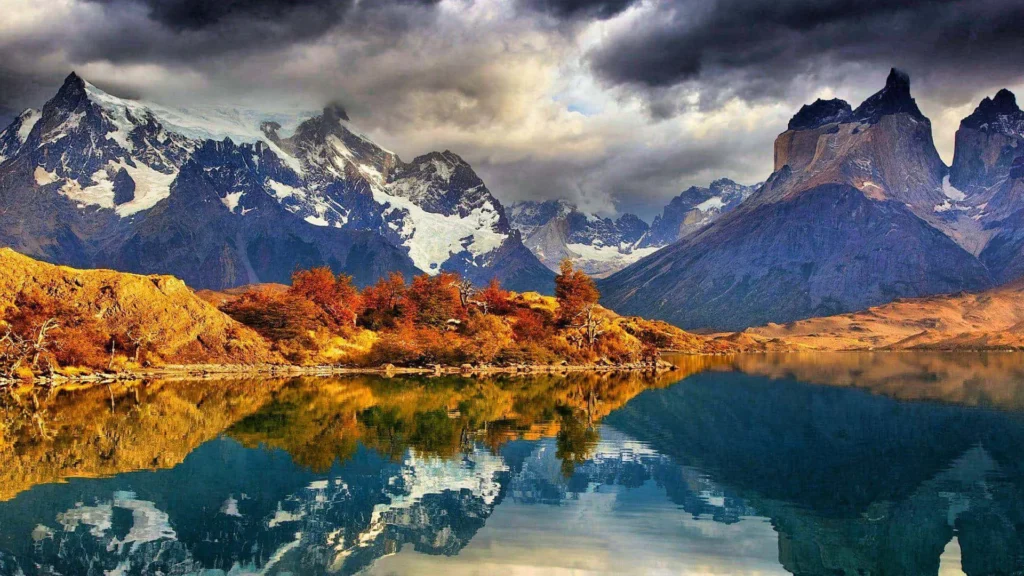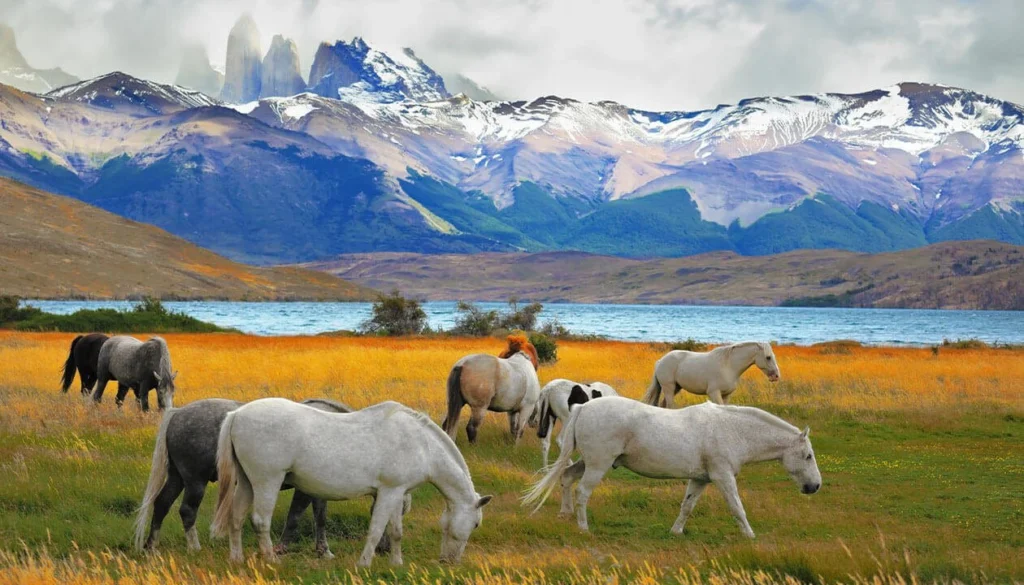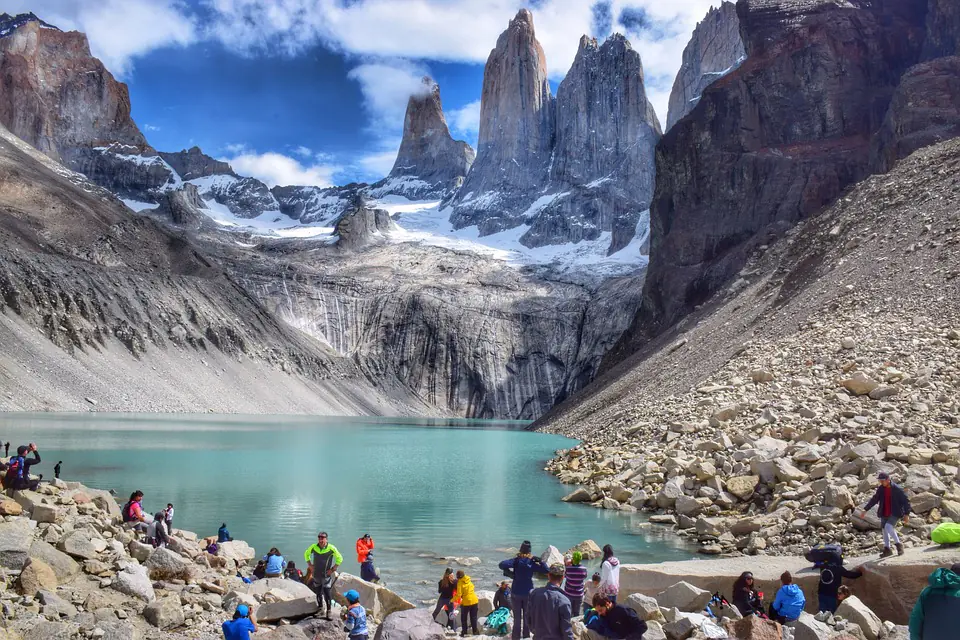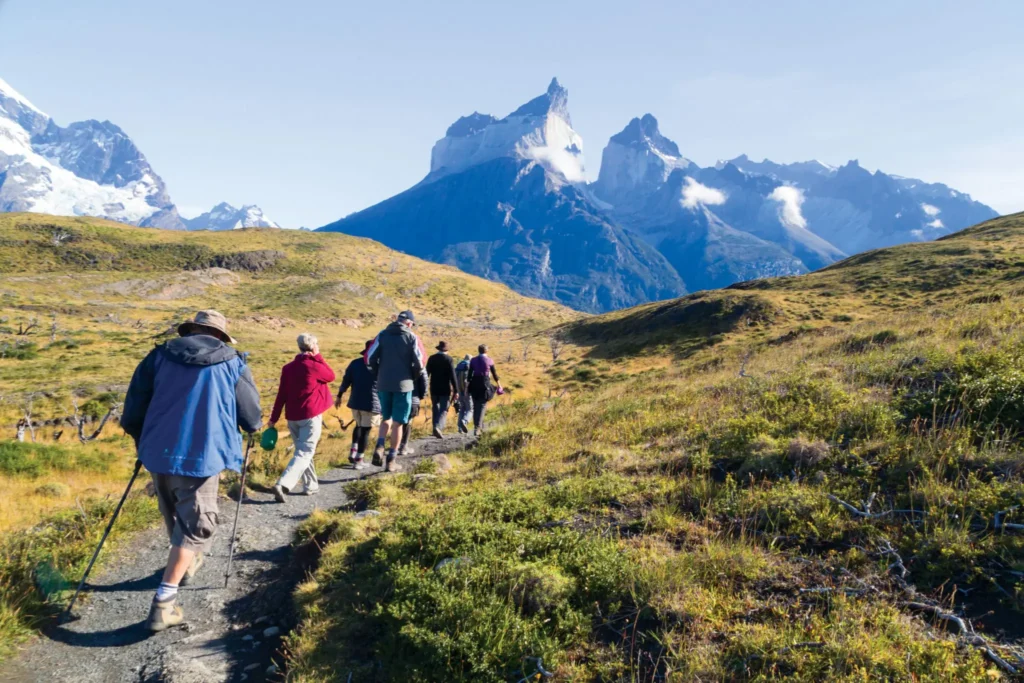The DryFoxCo Blog
A Majestic Wilderness
Patagonia, a vast region shared by Argentina and Chile, is a realm of unparalleled natural beauty and untamed wilderness. Stretching from the Andes Mountains to the Atlantic Ocean, this remote area is a treasure trove for adventurers, nature enthusiasts, and those seeking solace in the great outdoors. The sheer diversity of landscapes—from towering peaks and glaciers to expansive deserts and windswept steppes—makes Patagonia a destination like no other.

The Iconic Landscapes
Torres del Paine National Park- One of Patagonia's crown jewels is Torres del Paine National Park in Chile. The park is renowned for its dramatic granite towers, which rise sharply into the sky like sentinels guarding the wilderness. Hiking to the base of these towers offers a challenging but immensely rewarding experience. The park's diverse ecosystem includes glacial lakes with hues ranging from turquoise to deep blue, dense forests, and vast pampas that stretch as far as the eye can see. Wildlife sightings are common, with guanacos, foxes, and even pumas roaming the terrain.
Los Glaciares National Park- In Argentina, Los Glaciares National Park is a UNESCO World Heritage site and home to some of the world's most impressive glaciers. The Perito Moreno Glacier, a massive ice formation known for its mesmerizingly blue ice and regular calving events, is a highlight. Visitors can witness huge chunks of ice breaking off and crashing into the waters below—a breathtaking natural spectacle. The park also features Mount Fitz Roy, a favorite among mountaineers and photographers for its jagged peaks and stunning silhouettes.
Tierra del Fuego- At the southernmost tip of Patagonia lies Tierra del Fuego, an archipelago shared by Argentina and Chile. Known as the "Land of Fire," this area is characterized by its rugged coastline, fjords, and temperate rainforests. Ushuaia, the southernmost city in the world, serves as a gateway to Antarctica and offers unique experiences such as cruises through the Beagle Channel and visits to penguin colonies. The dramatic scenery and the feeling of being at the end of the world make Tierra del Fuego a must-visit destination.

The Struggles of Patagonia
While Patagonia's beauty is awe-inspiring, it comes with its own set of challenges. The region's remoteness, unpredictable weather, and rugged terrain can make travel difficult, requiring careful planning and preparation.
Weather Extremes- Patagonia's weather is notoriously unpredictable. Visitors can experience all four seasons in a single day, with sudden temperature drops, heavy rain, and powerful winds being common occurrences. The strong winds, known as "Patagonian winds," can reach speeds of over 100 km/h, making outdoor activities challenging. Layered clothing and weather-resistant gear are essential for staying comfortable and safe.
Remote Locations- Patagonia's vastness and sparse population mean that many attractions are located far from major cities or towns. This remoteness can make travel logistics complex and time-consuming. Long drives on gravel roads, limited access to fuel and supplies, and the need for reliable transportation are all factors to consider. Moreover, accommodations can be basic in some areas, and it's advisable to book well in advance during peak seasons.
Physical Demands- Exploring Patagonia often requires a good level of physical fitness. Many of the region's iconic hikes and treks, such as the "W" trek in Torres del Paine or the hike to Laguna de los Tres in Los Glaciares, involve steep ascents, rocky paths, and long distances. Travelers should be prepared for physically demanding activities and ensure they have suitable footwear and hiking gear. Altitude can also be a factor in certain areas, so acclimatization may be necessary.
Environmental Considerations- Preserving Patagonia's pristine environment is crucial, and visitors must adhere to strict guidelines to minimize their impact. This includes sticking to marked trails, packing out all waste, and respecting wildlife habitats. The fragile ecosystems can be easily disrupted, so responsible travel practices are essential. Additionally, camping regulations are enforced in many national parks to prevent overuse and protect natural resources.

The Rewards of Overcoming Challenge
Despite the challenges, the rewards of visiting Patagonia are immense. The sense of accomplishment from completing a strenuous hike, the thrill of spotting rare wildlife, and the tranquility of standing in a remote, untouched landscape are experiences that stay with travelers long after they leave. Patagonia's beauty lies not only in its extraordinary landscapes but also in the raw, untamed nature that challenges and enriches those who venture into its depths.
Cultural and Historical Experiences- Patagonia is not only about stunning landscapes; it also offers rich cultural and historical experiences. The region's Indigenous heritage, colonial history, and unique blend of cultures add depth to the Patagonian adventure.
Indigenous Heritage- Patagonia is home to several Indigenous communities, each with its own history, traditions, and connection to the land. The Mapuche, Tehuelche, Selk'nam, and Yámana peoples have inhabited these lands for thousands of years. Visitors can learn about their culture, traditional crafts, and ways of life through guided tours and cultural centers. This connection to the ancient cultures of Patagonia adds a profound dimension to the travel experience.
Historical Exploration- The age of exploration brought intrepid adventurers to Patagonia's rugged shores. Figures like Ferdinand Magellan and Charles Darwin journeyed through these lands, leaving behind a legacy of discovery and scientific inquiry. Visiting places like the Strait of Magellan, the Beagle Channel, and the various historical sites related to these explorers offers a glimpse into the challenges and triumphs they faced.
Modern Patagonian Culture- Today, Patagonia is a melting pot of cultures, influenced by its Indigenous roots and European settlers. Sheep farming, or "estancias," is a significant part of the region's economy and culture. Visitors can stay at working estancias to experience traditional Patagonian hospitality, learn about sheep shearing, and enjoy the vast open spaces. The local cuisine, featuring lamb, seafood, and fresh produce, is a delightful aspect of the cultural experience.

Practical Tips for a Successful Trip
To make the most of your Patagonian adventure, here are some practical tips to help you navigate the challenges and embrace the beauty of this incredible region.
Plan Ahead- Due to its remote location and limited infrastructure, planning ahead is crucial for a successful Patagonian trip. Research the areas you wish to visit, the best times to go, and the logistics of getting there. Booking accommodations, tours, and transportation in advance can save you from potential frustrations and help you secure the best options.
Pack Smart- Packing for Patagonia requires thoughtful consideration of the diverse and changing weather conditions. Layered clothing, waterproof gear, sturdy hiking boots, and sun protection are essential. A detailed packing list tailored to the specific activities and regions you plan to visit will ensure you're prepared for any situation.
Stay Informed- Weather conditions in Patagonia can change rapidly. Keep an eye on local weather forecasts and be prepared to adapt your plans accordingly. Local guides, park rangers, and visitor centers can provide valuable information and updates to help you stay safe.
Respect Nature- Patagonia's pristine environment is a treasure that must be preserved for future generations. Follow Leave No Trace principles, respect wildlife, and stick to designated trails. By minimizing your impact, you contribute to the conservation of this magnificent region.
Embrace Flexibility- Flexibility is key when traveling in Patagonia. Unexpected changes, delays, or detours are part of the adventure. Embrace the unpredictability, and you'll find that the journey itself is as rewarding as the destination.
Visiting Patagonia is a journey into one of the world's last great wildernesses. Its majestic landscapes, diverse ecosystems, and rich cultural heritage make it an unparalleled destination for those who seek adventure and connection with nature. While the challenges of travel in such a remote and untamed region are significant, the rewards are immense. The beauty of Patagonia lies not only in its breathtaking scenery but also in the sense of awe and wonder it inspires. For those willing to embrace the struggles, Patagonia offers a travel experience that is profoundly enriching and unforgettable.

